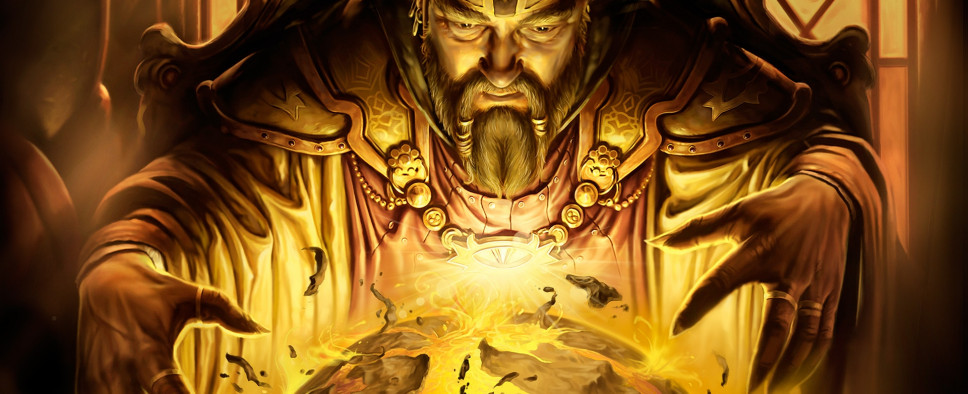How Devs and Fans Are Coming Together to Rebuild Neverwinter Nights
-
Category: News ArchiveHits: 3503

Neverwinter Nights: Enhanced Edition is Beamdog's most ambitious project to date, mostly because the original game had a thriving online community and modernizing the multiplayer aspects of a game built around dial-up connections is no easy task. However, this PC Gamer article, peppered with quotes from a number of Beamdog developers as well as former NWN module creators, now members of NWN:EE's so-called Advisory Council, makes it sound like they know what they're doing.
A few snippets:
"Neverwinter Nights changed my life," Tony 'Andarian' Donadio tells me. Donadio adapted his college Dungeons & Dragons campaign to create a module for BioWare’s 2002 D&D game, Neverwinter Nights, thanks to its dev kit being made available to players. The Aurora Toolset let players make their own modules, campaigns, and even miniature MMOs called 'Persistent Worlds'. It's mainly thanks to these fan-made works that Neverwinter Nights is still fondly remembered.
Donadio's creation, Sanctum of the Archmage, features a compelling story, impressive visuals, custom scripts, and well-designed puzzles and combat. It’s one of the highest-rated modules on the Neverwinter Vault to this day, and Donadio now writes books based on it.
When Beamdog’s Neverwinter Nights: Enhanced Edition was announced I contacted several prominent community members who all shared a passion for the 15-year-old RPG. I also spoke to Trent Oster, Beamdog CEO and the original game's designer and producer, who is well aware of Neverwinter Nights’ unique position as a game carried by its fans.
"Neverwinter Nights is all about the community," Oster says. "We went to the community even before we had the license." Oster looked for active leaders, going as far as to hand out non-disclosure agreements and extending employment offers. Those superfans turned consultants became known as the Advisory Council.
It takes a village
"I think this approach of bringing on community members and seeking feedback was exemplary," says Bernhard 'Niv' Stockner. "I wish more game studios would do that for EEs, sequels and remasters. Especially with NWN having built up a solid, opinionated community, doing it this way was absolutely necessary."
Like Donadio, Stockner credits Neverwinter Nights as a major influence and turning point in his career. Stockner helped develop the popular script extender mod NWNX, ran one of the largest German Persistent Worlds for 13 years (Silbermarken, now defunct), and is the technical administrator for the Neverwinter Vault, the repository for all custom-built content. His work with Neverwinter Nights sparked a passion for programming and community relations.
Shortly after joining the Advisory Council, Stockner was hired by Beamdog as a software developer. He also acts as a liaison between the community and the developers. "It's sometimes a bit of a stretch to balance out community needs and Beamdogs' needs," he admits, "but I relish the challenge."
"Literally hundreds of original, high-quality, full-length adventures have been developed over the years," says Donadio. "The key challenge NWN: EE faces is to focus on, and nurture, what truly made the game unique and special: its modding community."
That's why backwards compatibility with existing modules and other community content was an absolute must. "The biggest challenge is to figure out where to take NWN:EE without breaking everyone’s favorite toy," says Stockner. "We can’t expect people to buy a game that carries the name Neverwinter Nights and break everything along the way."
[...]
Enhancing Neverwinter's nostalgia
While there has been some demand for a graphical overhaul, most of the people I talked to would rather see improvements to other areas, such as online connectivity and server tools, more modability, and better hardware support for modern PCs. "The Aurora Toolset can still produce incredibly beautiful content," says Morris, noting that player-made creations already advanced the visuals beyond the original campaigns. "The visuals are fine," adds Stockner. "They are charming, even, in their own blocky way. The game's value is in the flexibility and room for dreams it provides."
The most immediate area of improvement is the dated UI. "The current UI is almost completely rigid in both its appearance and functionality," Stockner says. "We’d like to allow module authors and servers to add new widgets, windows, and theming."
Beamdog also plans on implementing a new DLC system. "My biggest hope would be for a community-driven return of something like the premium modules program, which was tragically ended before its time," says Donadio.
The original premium module program began late in the game's life. Premium modules were developed in-house by BioWare in lieu of full expansions. They were individually priced DLC years before Bethesda would release their infamous Horse Armor. The program was extended to include some BioWare-approved community modules, but was abruptly canceled before their release, with most eventually released free via the Neverwinter Vault.
Oster hopes to produce quality premium modules that lie somewhere between BioWare’s original idea and full expansion packs like Hordes of the Underdark. "That happy spot is a self-contained adventure with new art content," says Oster. "We will build new content going forward that will radically change the look of what is possible in Neverwinter Nights, and I think we can do it at a pretty good price point." He compares them to the self-contained adventures for pen-and-paper Dungeons & Dragons, with the same scope as module booklets of older editions.
I guess that final part answers why one would get the Enhanced Edition over the already available Diamond one - the premium modules were usually high quality content and having more of those is a good thing in my book.

